The document discusses exception handling in .NET F# including try/with, try/finally, raising exceptions, and common exception types. It provides examples of handling different exceptions using try/with blocks and raising custom exceptions. The key constructs for exception handling in F# are covered including basic syntax, matching exception patterns, and ensuring cleanup code executes.
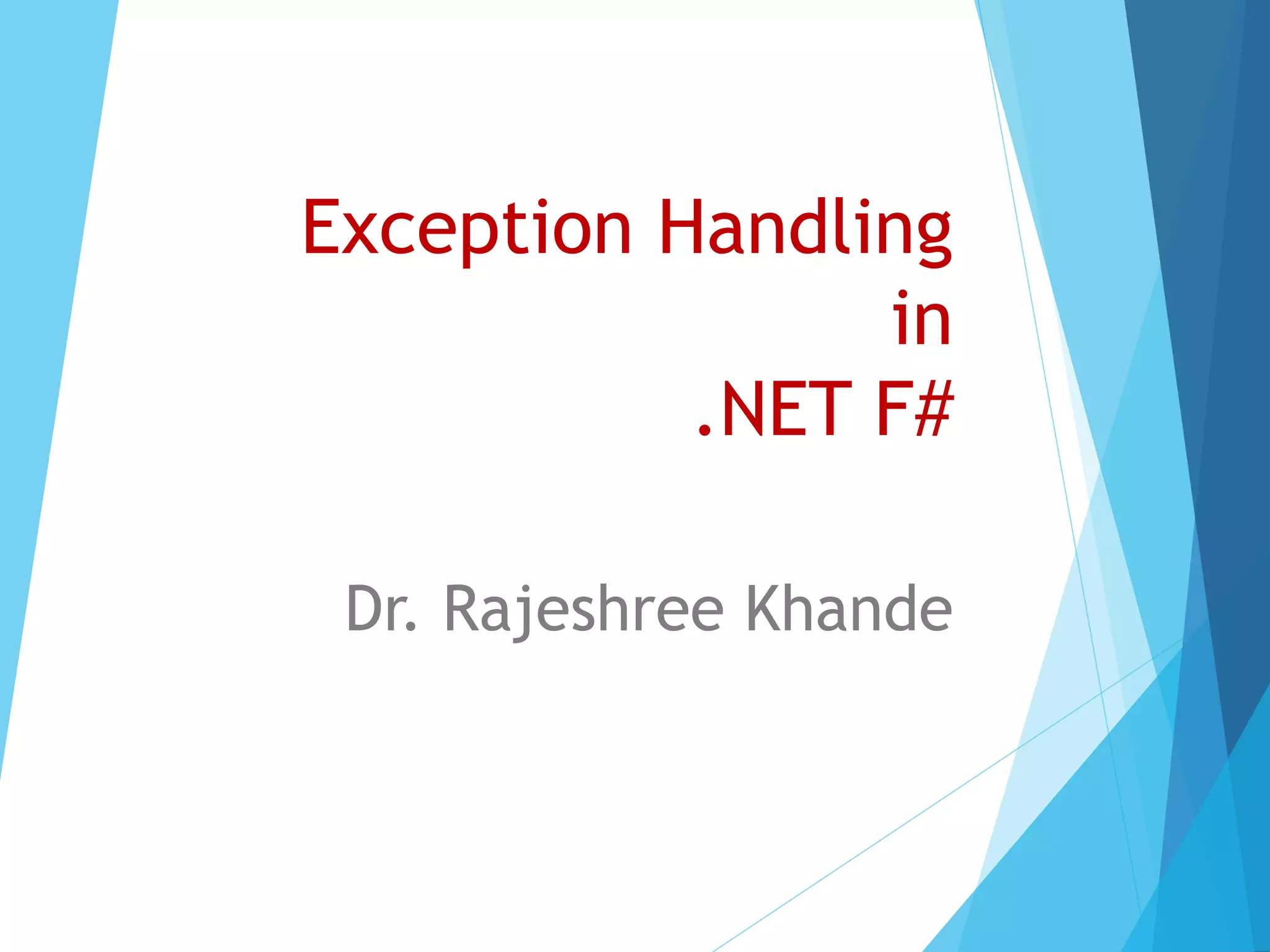
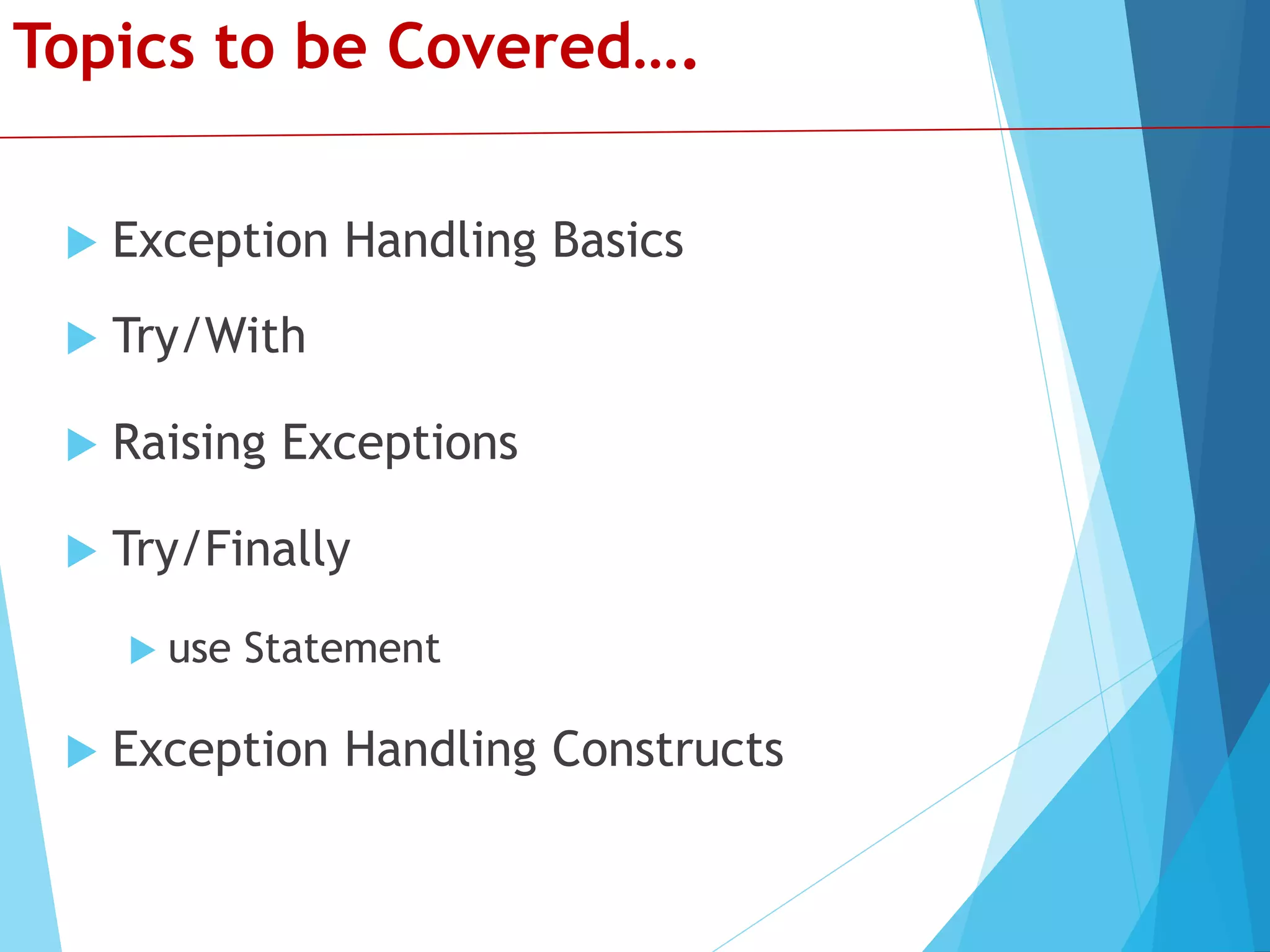
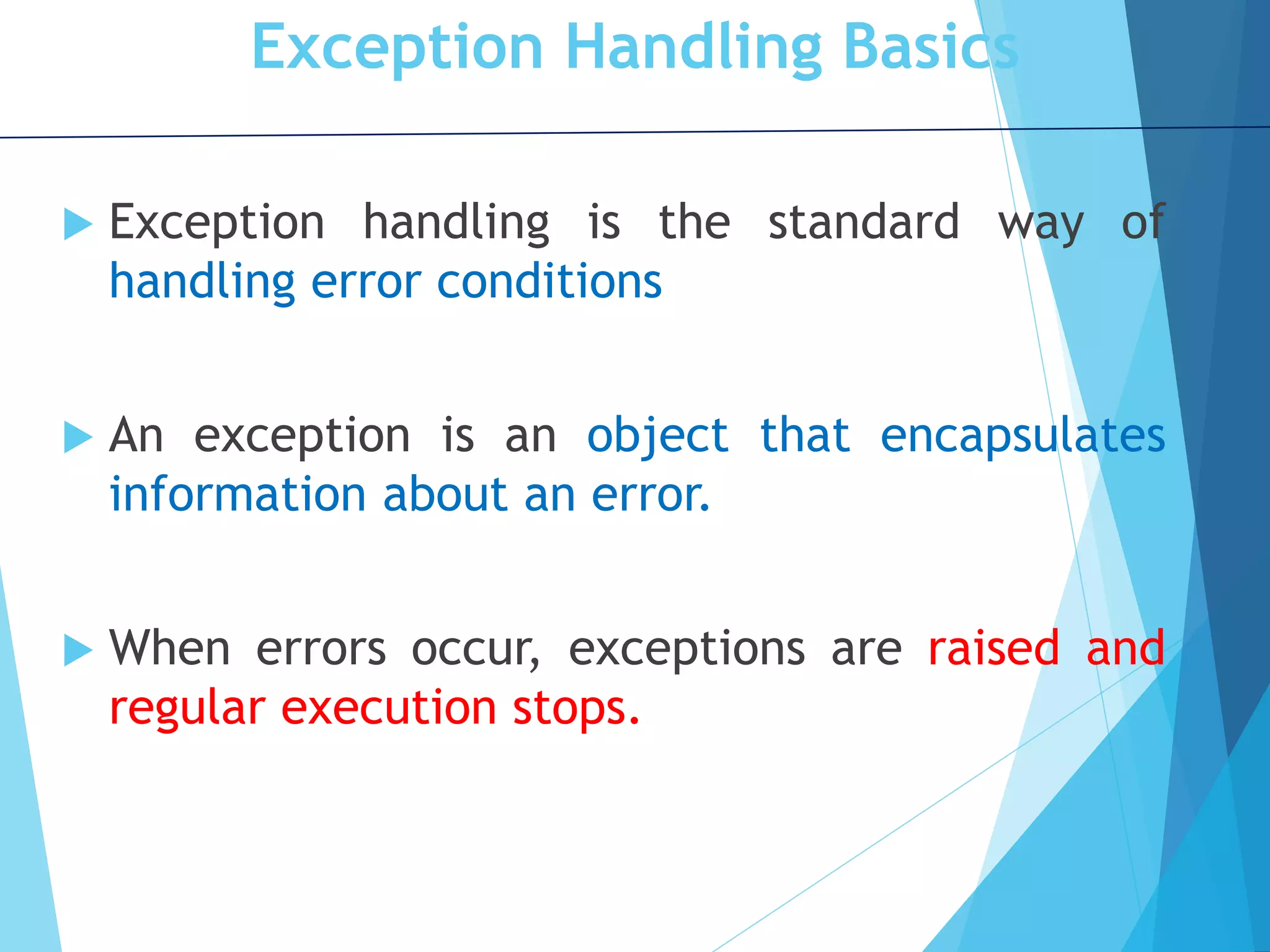
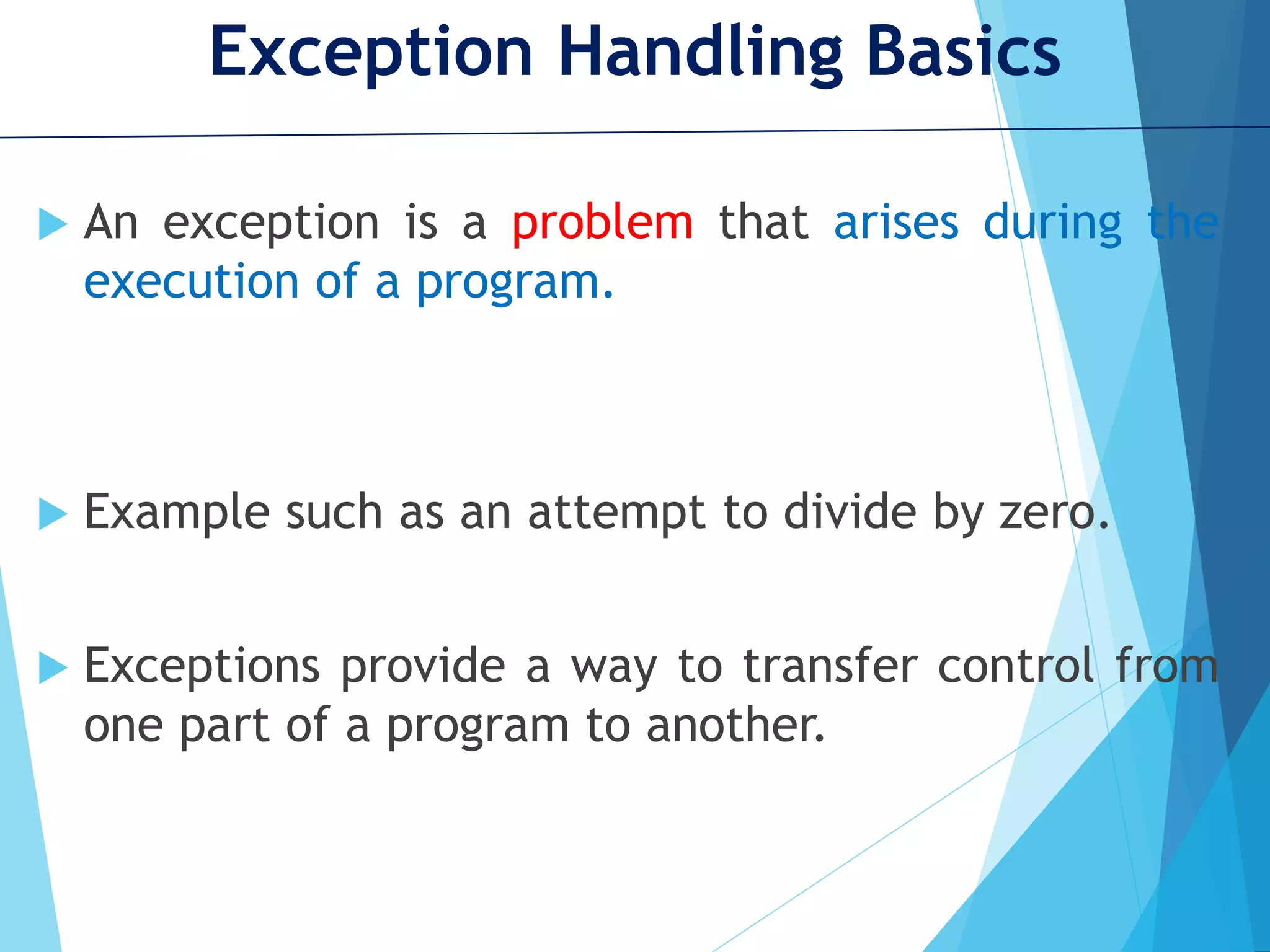
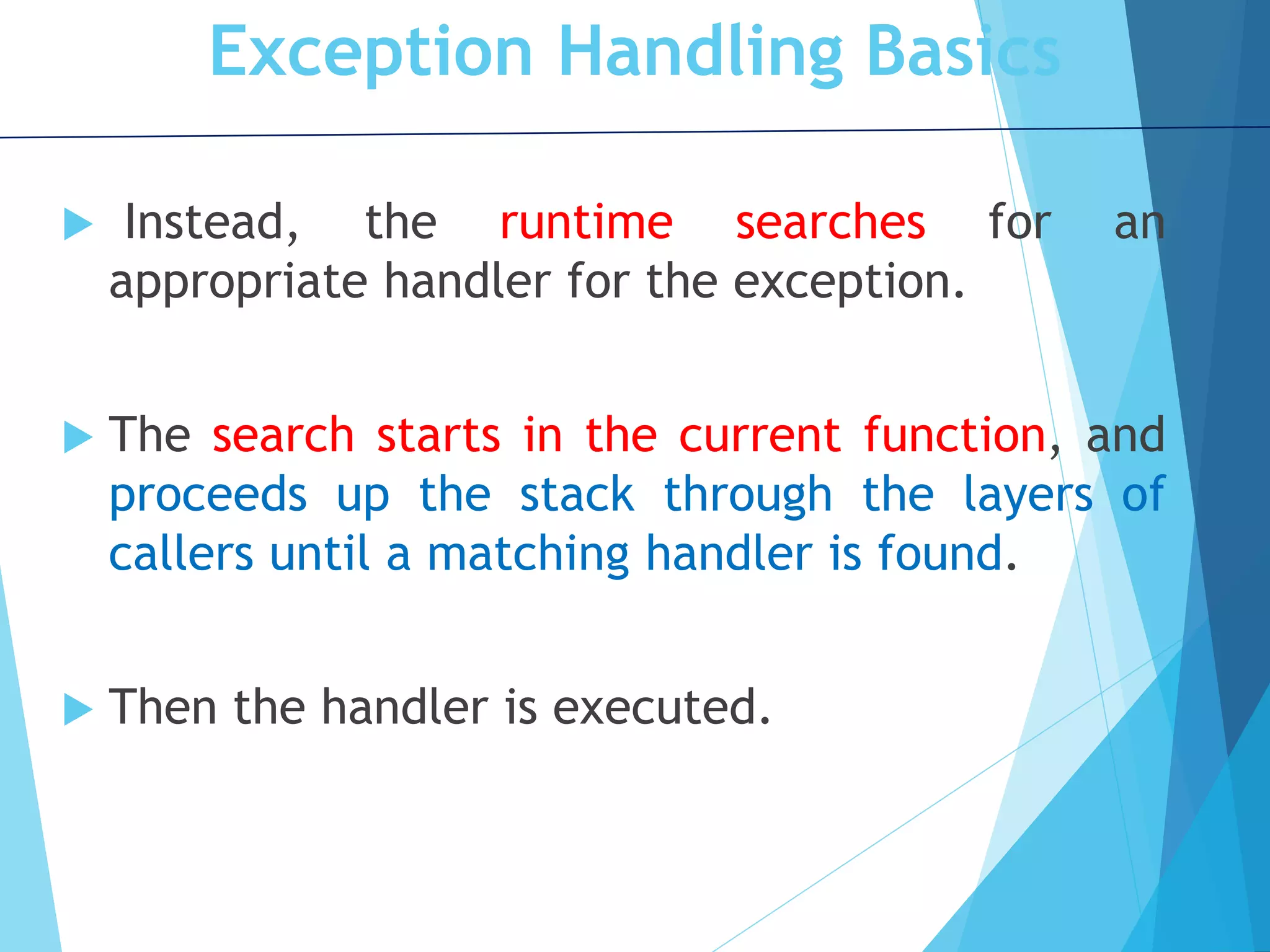
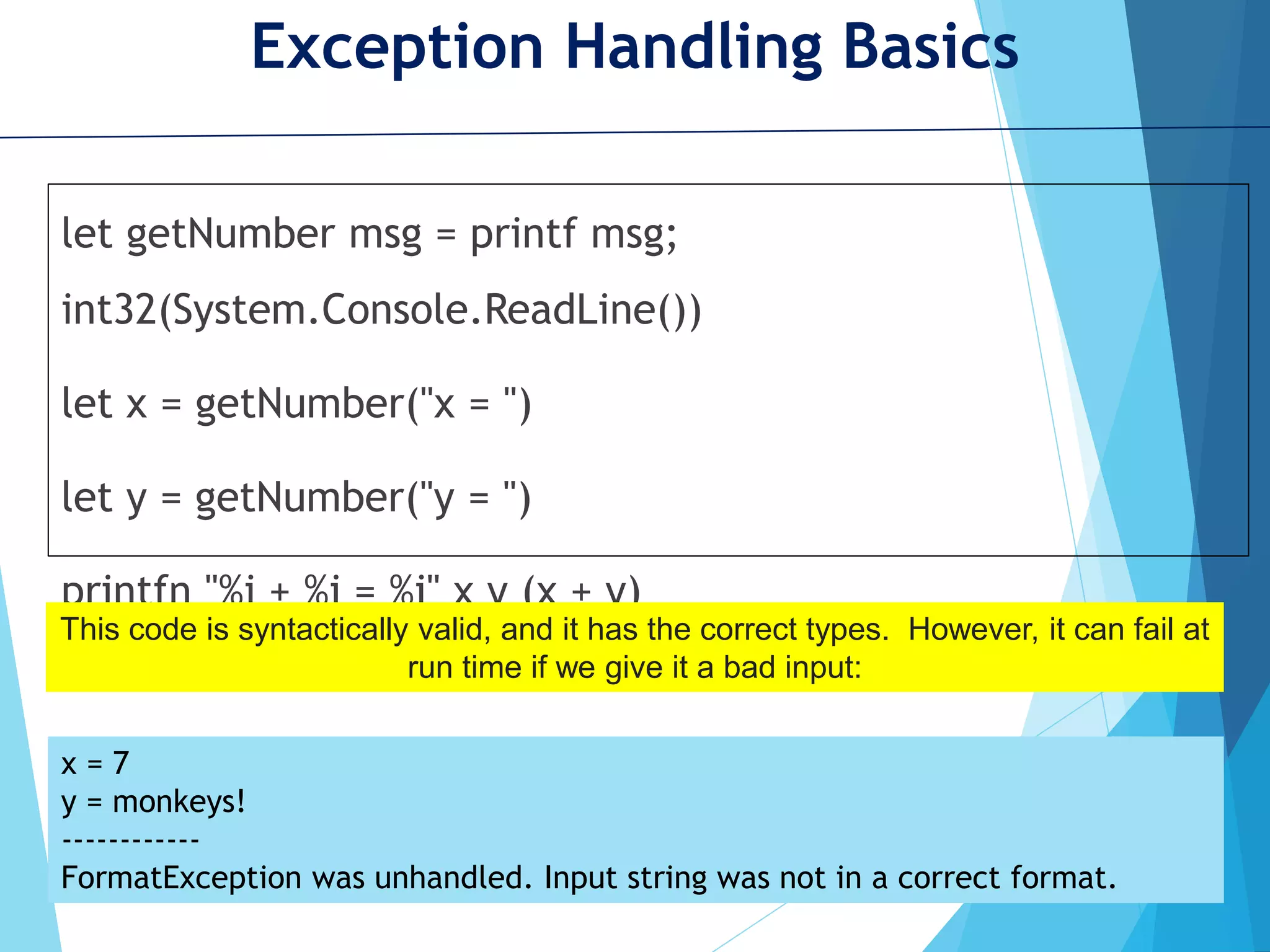
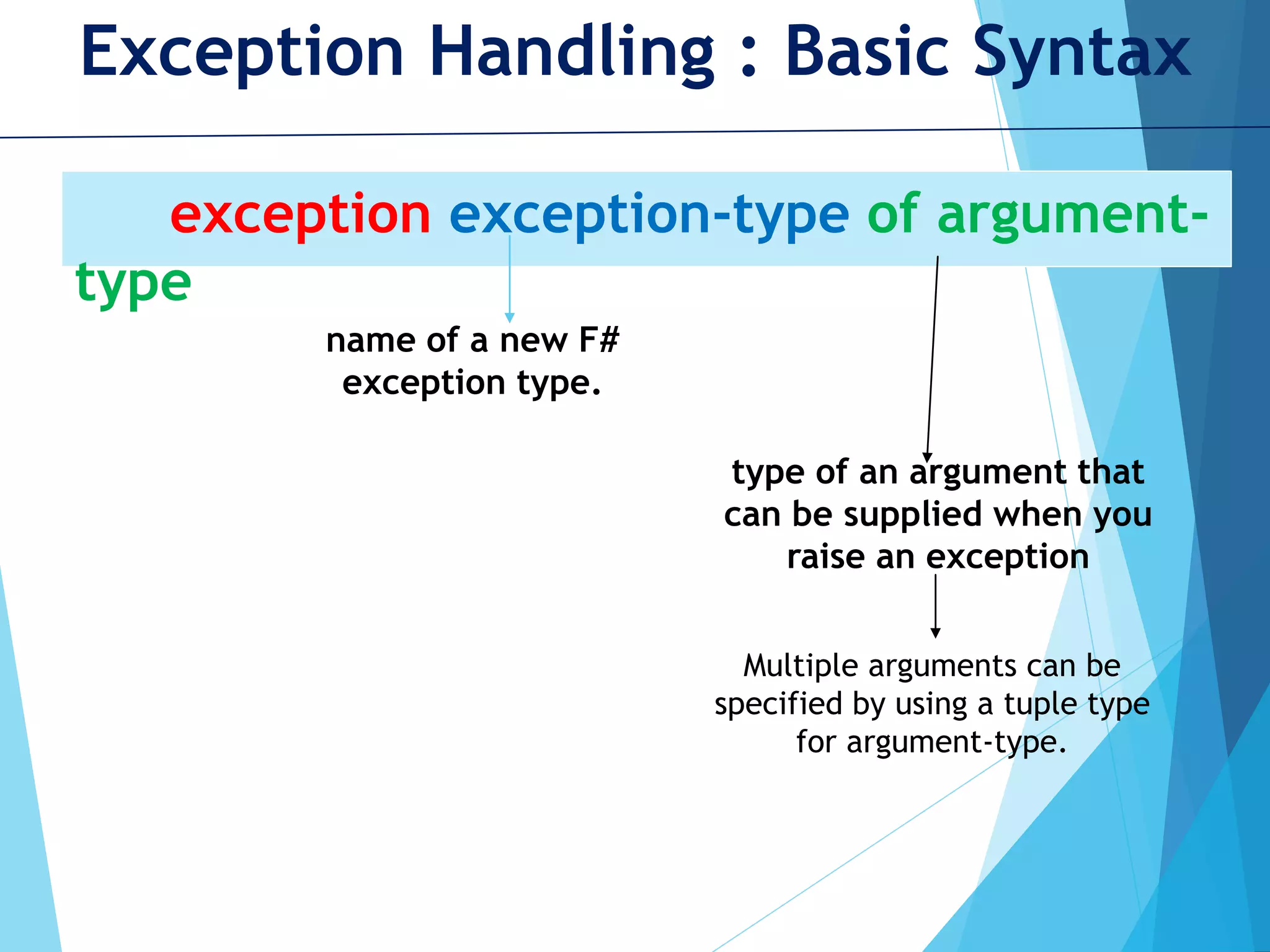
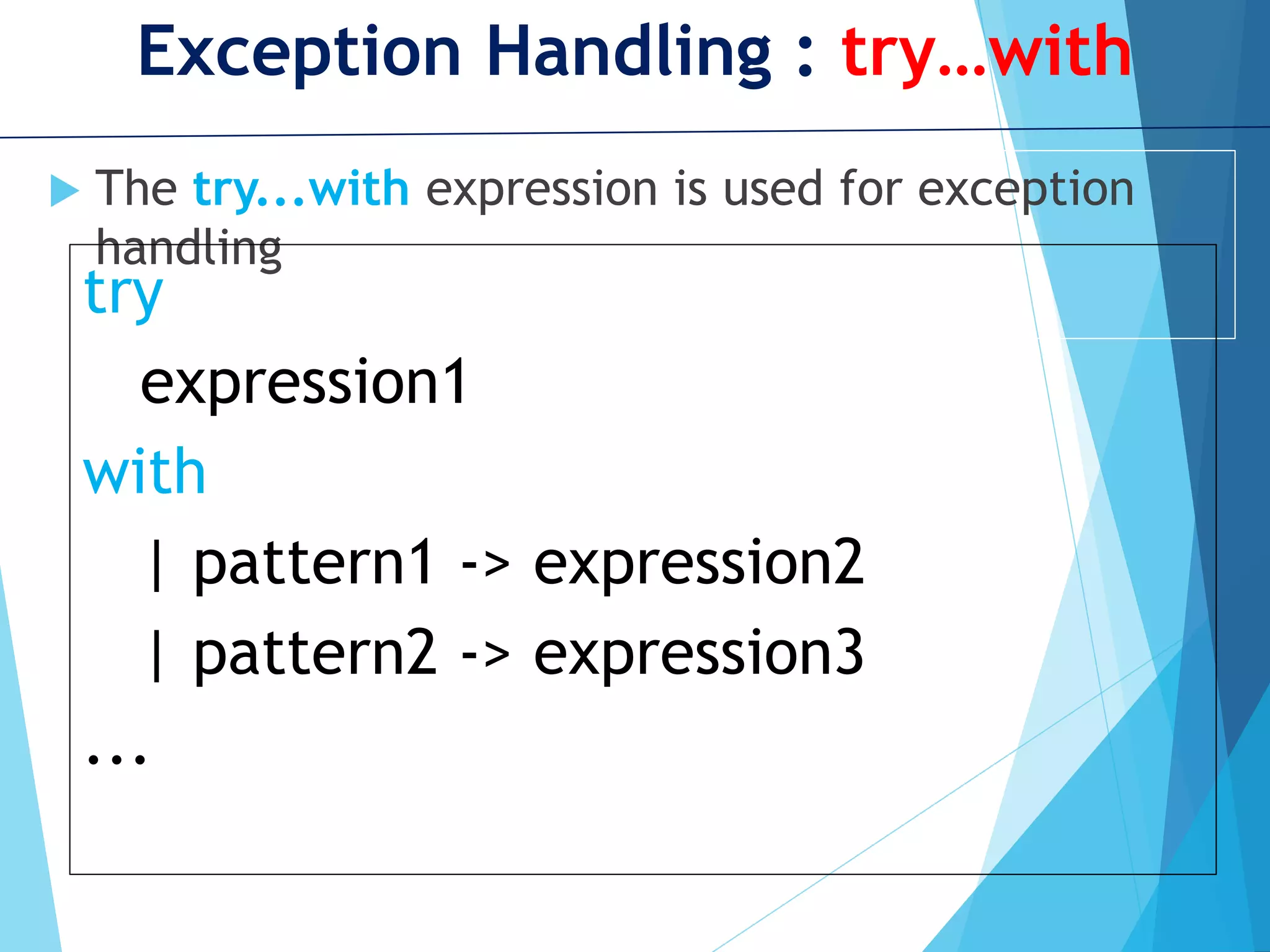
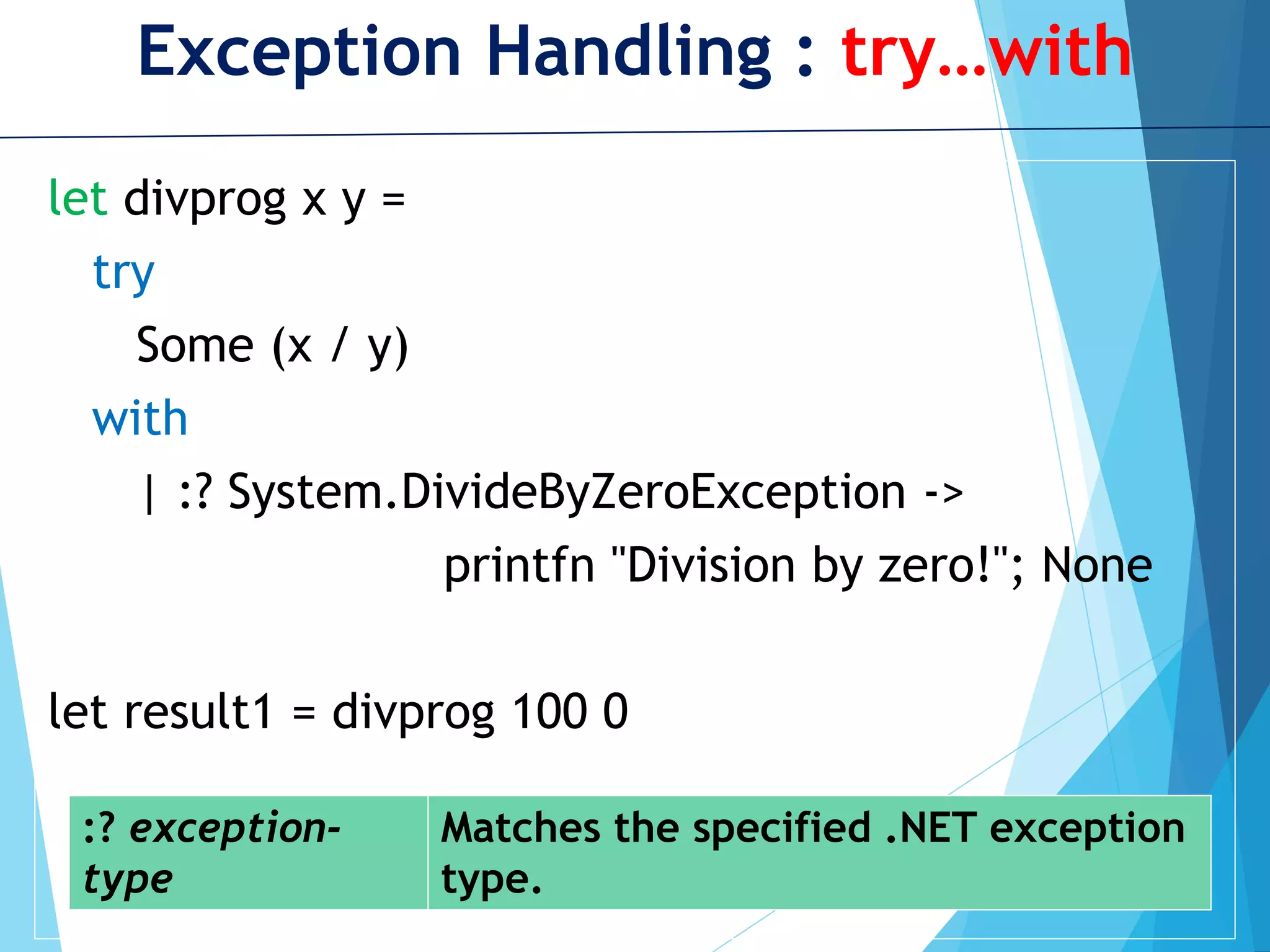
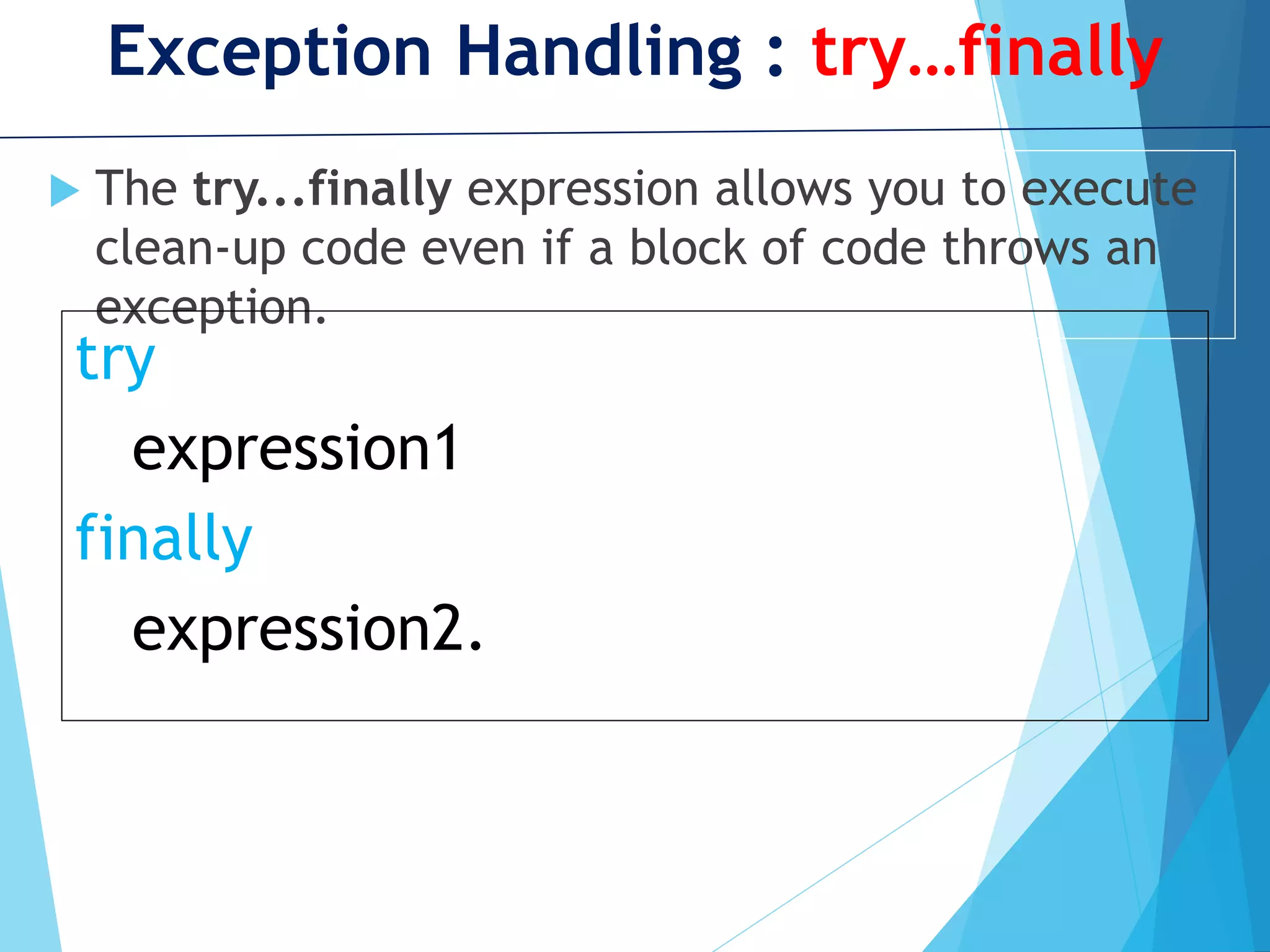
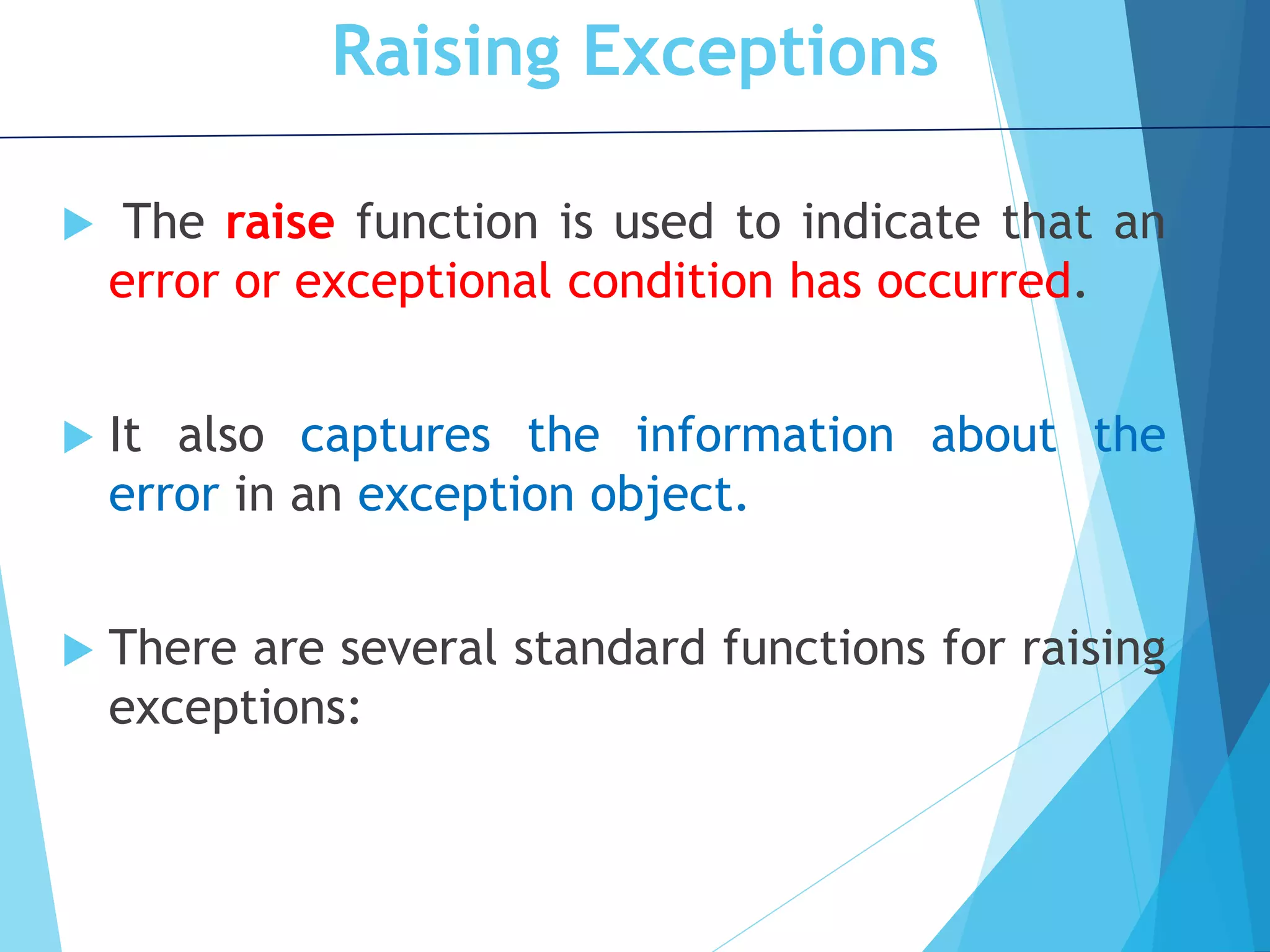
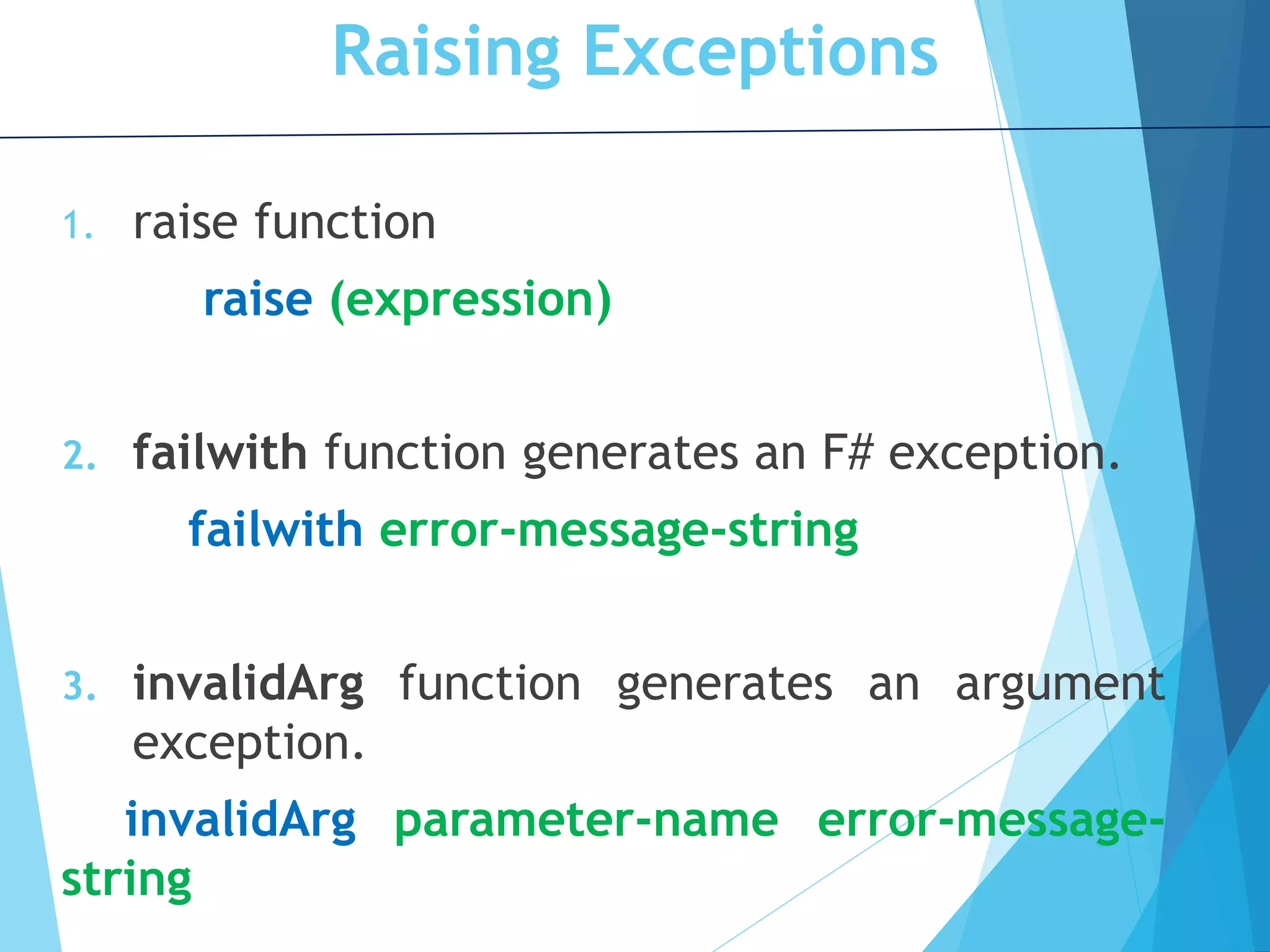
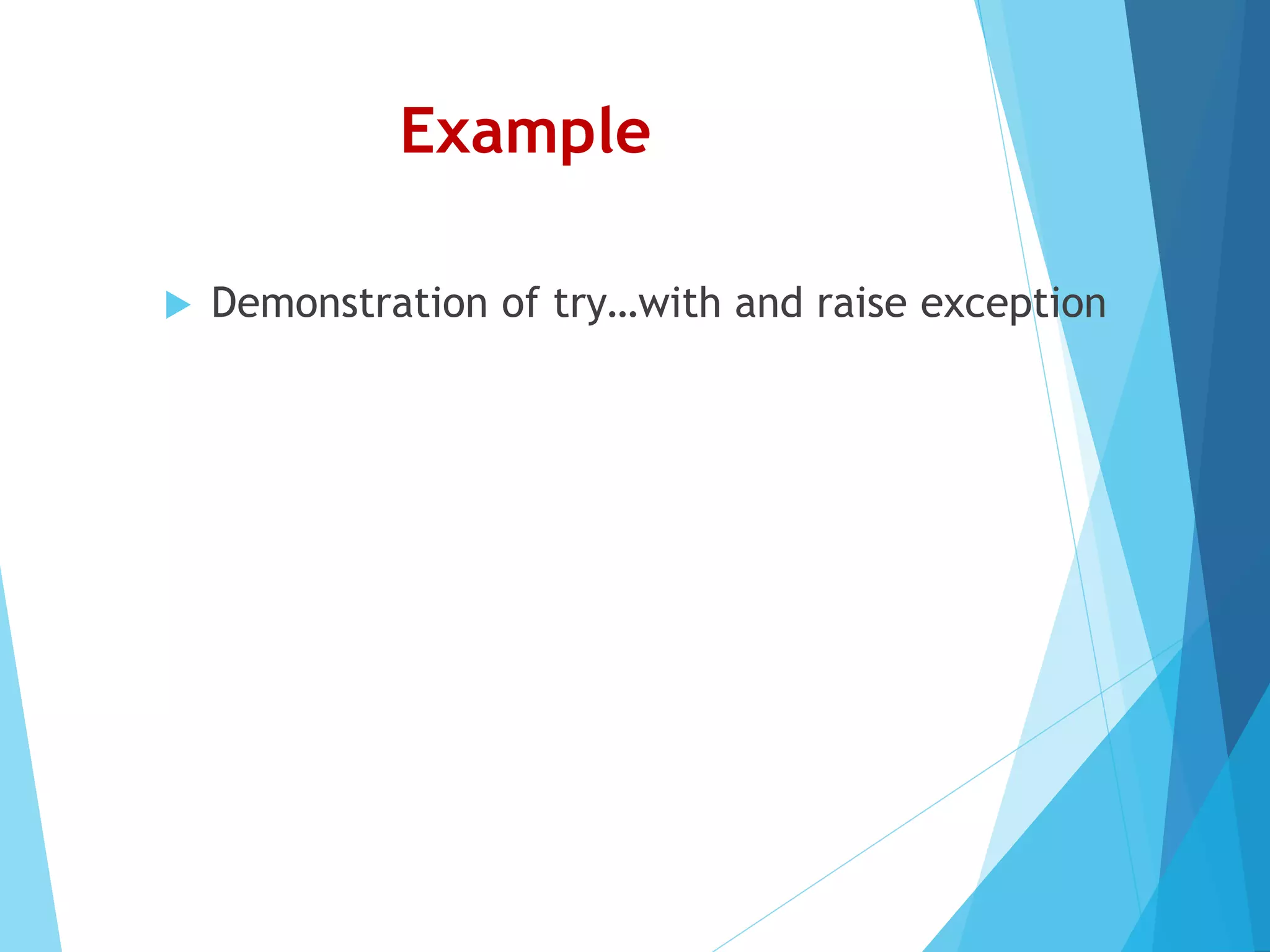
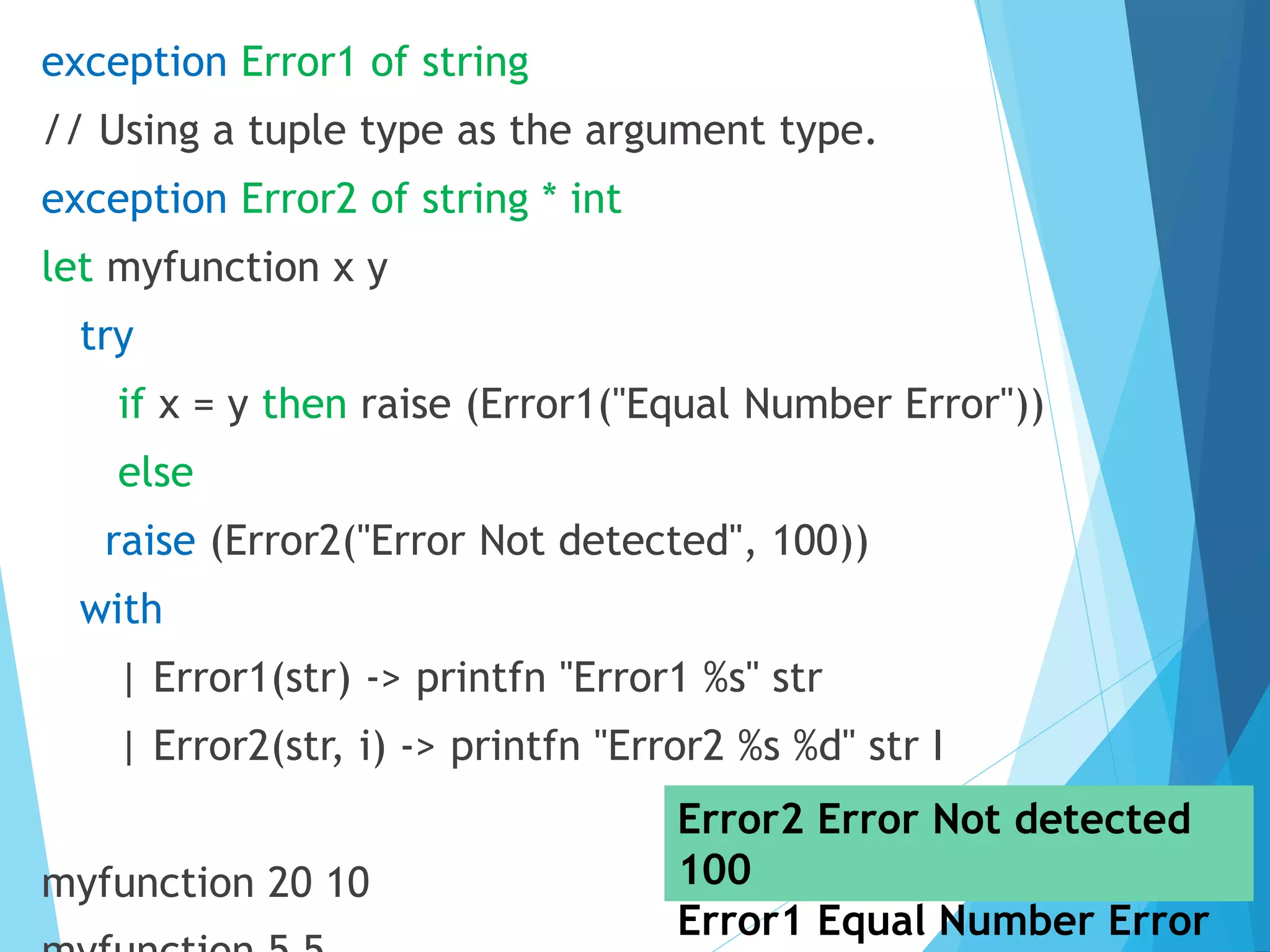
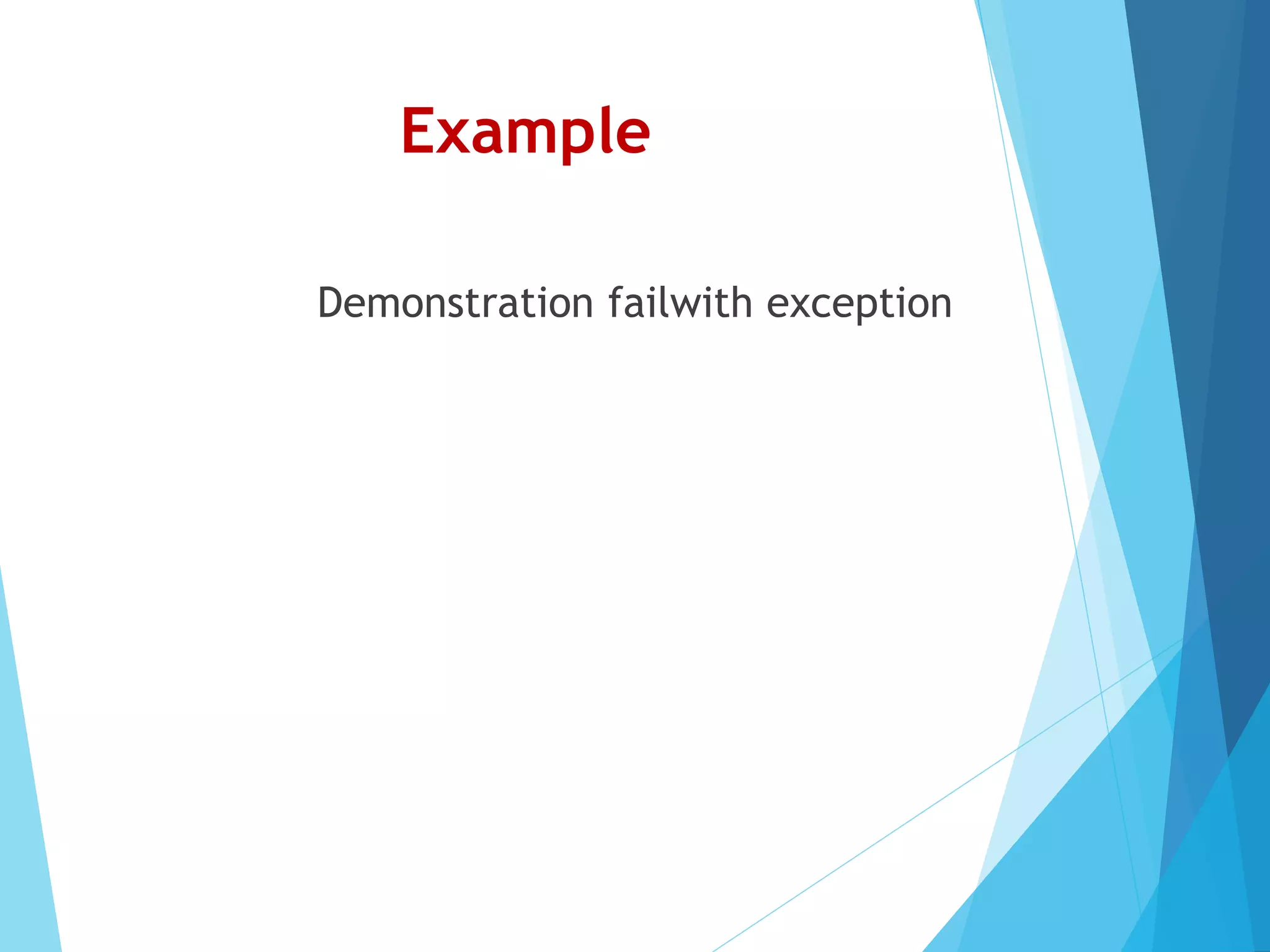
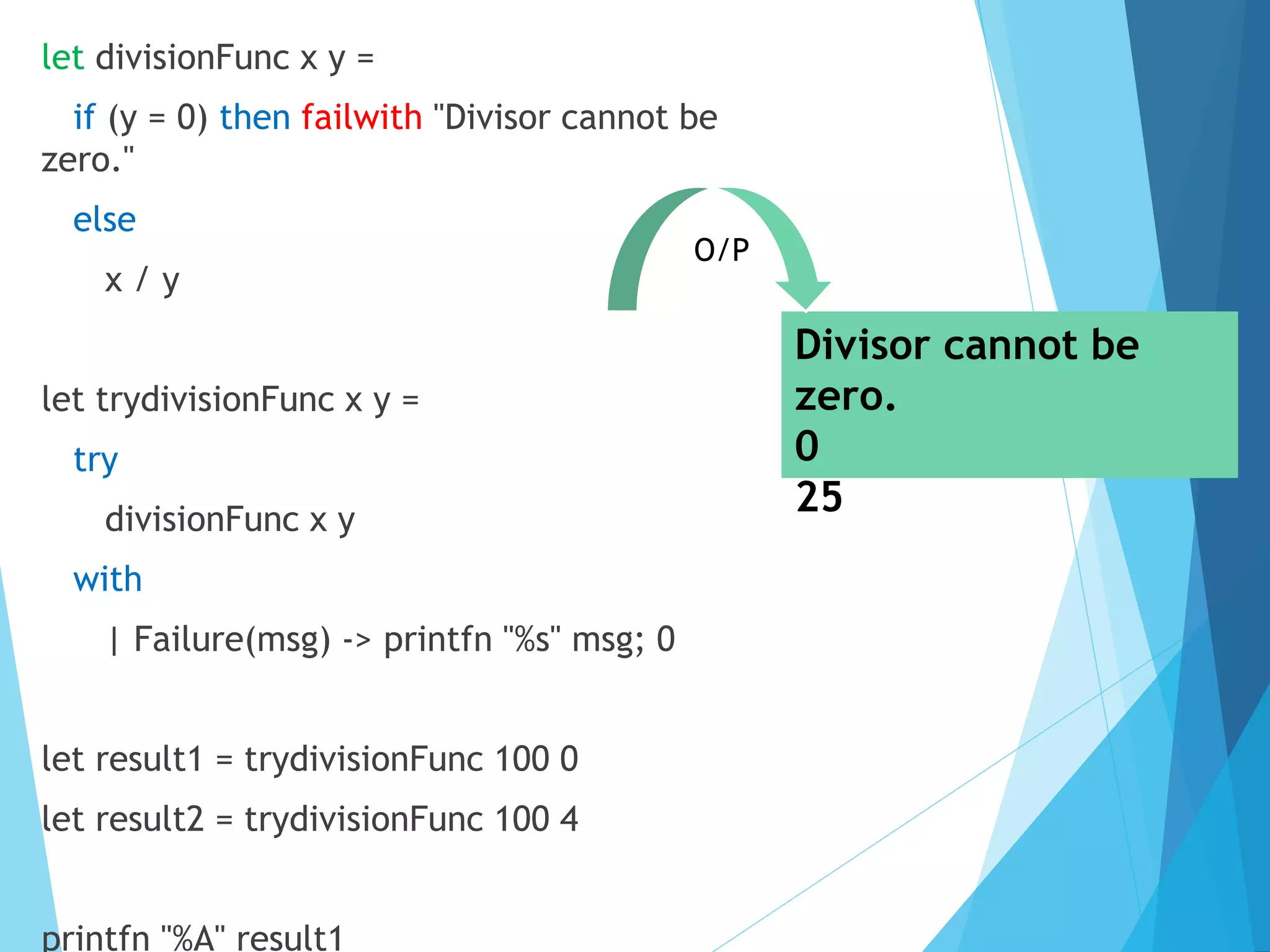
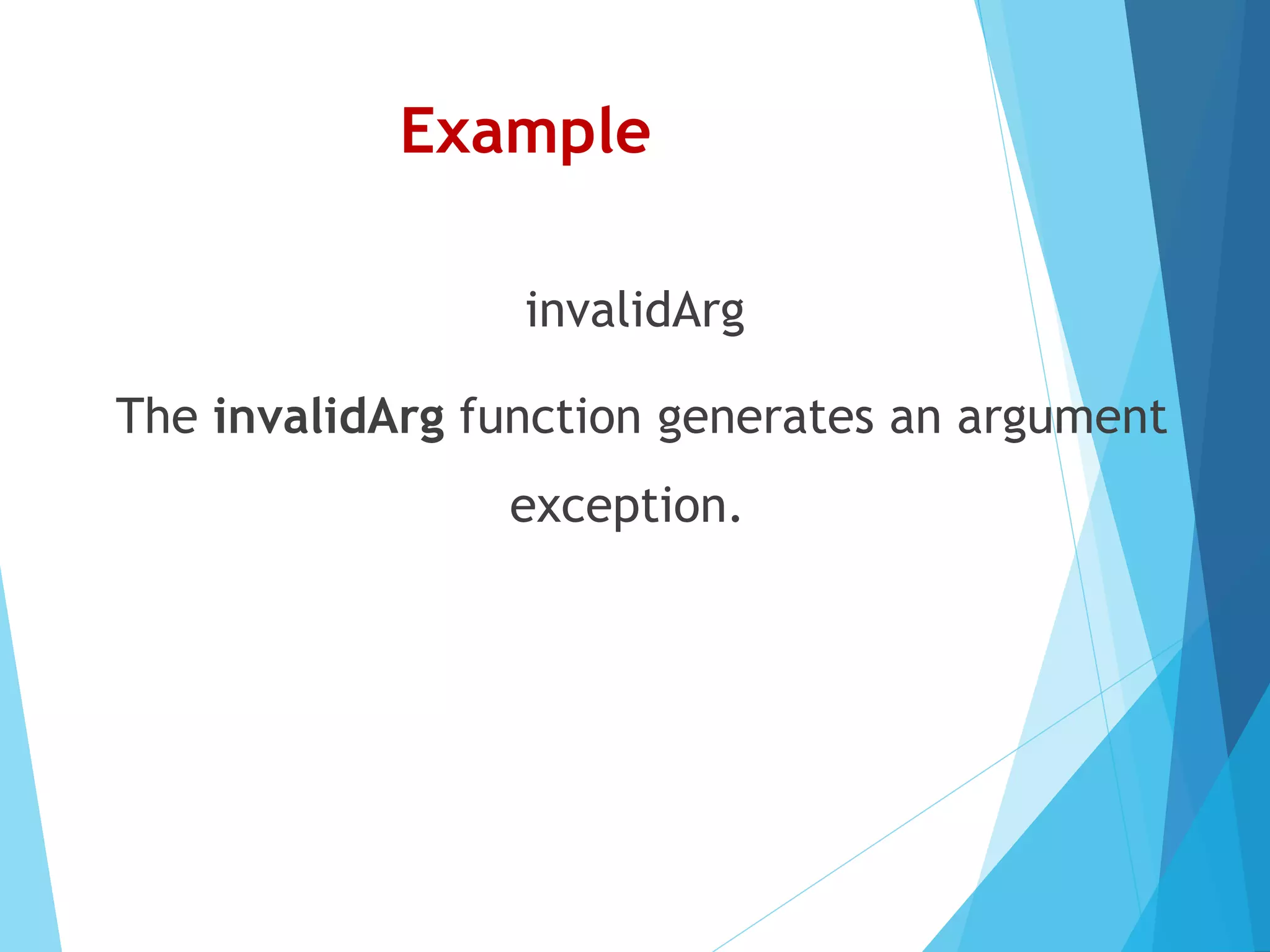
![let days = [| "Sunday"; "Monday"; "Tuesday"; "Wednesday"; "Thursday"; "Friday"; "Saturday" |] let findDay day = if (day > 7 || day <= 1) then invalidArg "day" (sprintf "You have entered %d." day) days.[day - 1] printfn "%s" (findDay 1) printfn "%s" (findDay 5) printfn "%s" (findDay 9) Sunday Thursday Unhandled Exception: System.ArgumentException: You have entered 9. Parameter name: day …… O/P](https://image.slidesharecdn.com/exceptionhandling-200516111055/75/Exception-Handling-in-NET-F-18-2048.jpg)
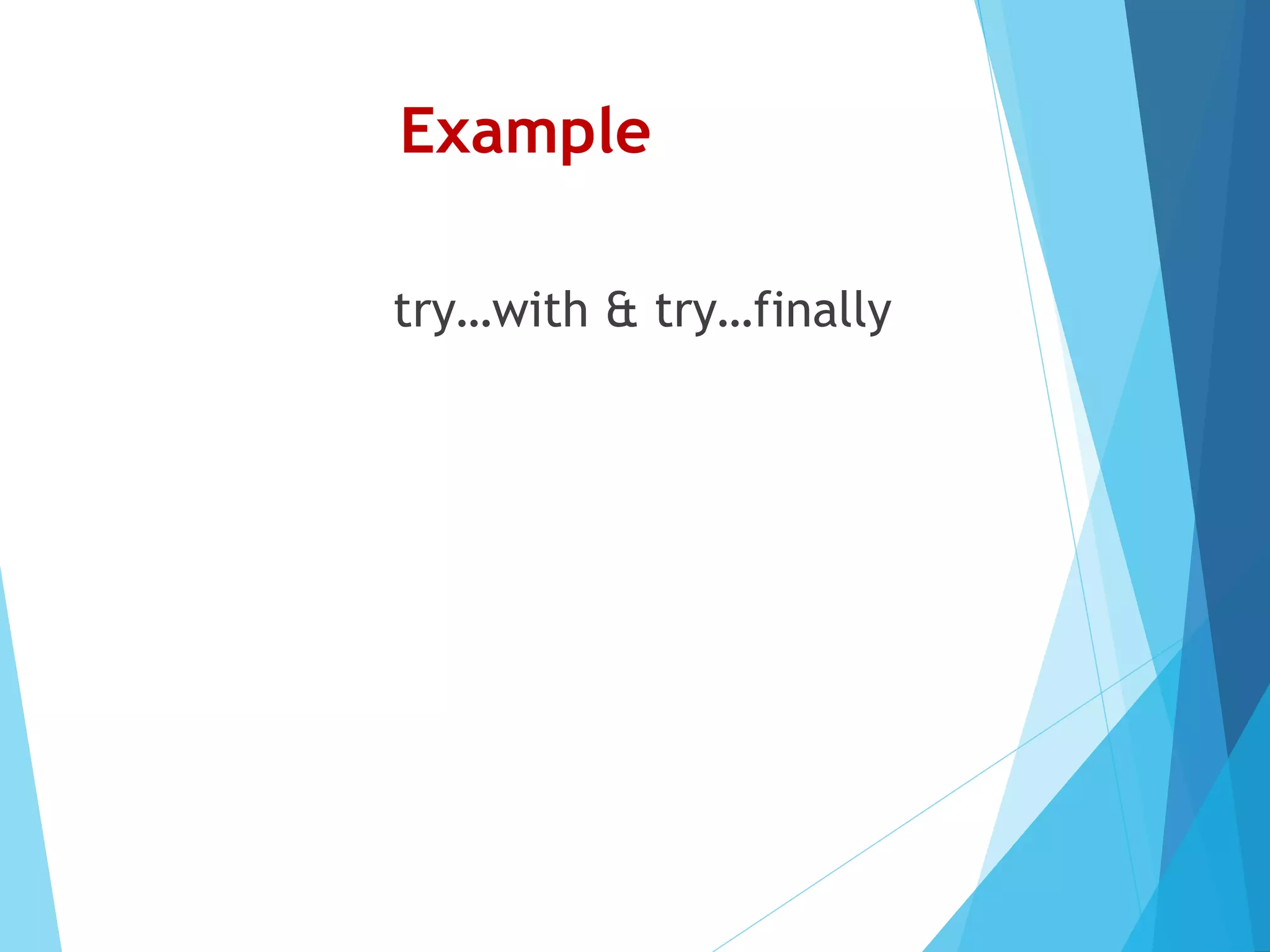
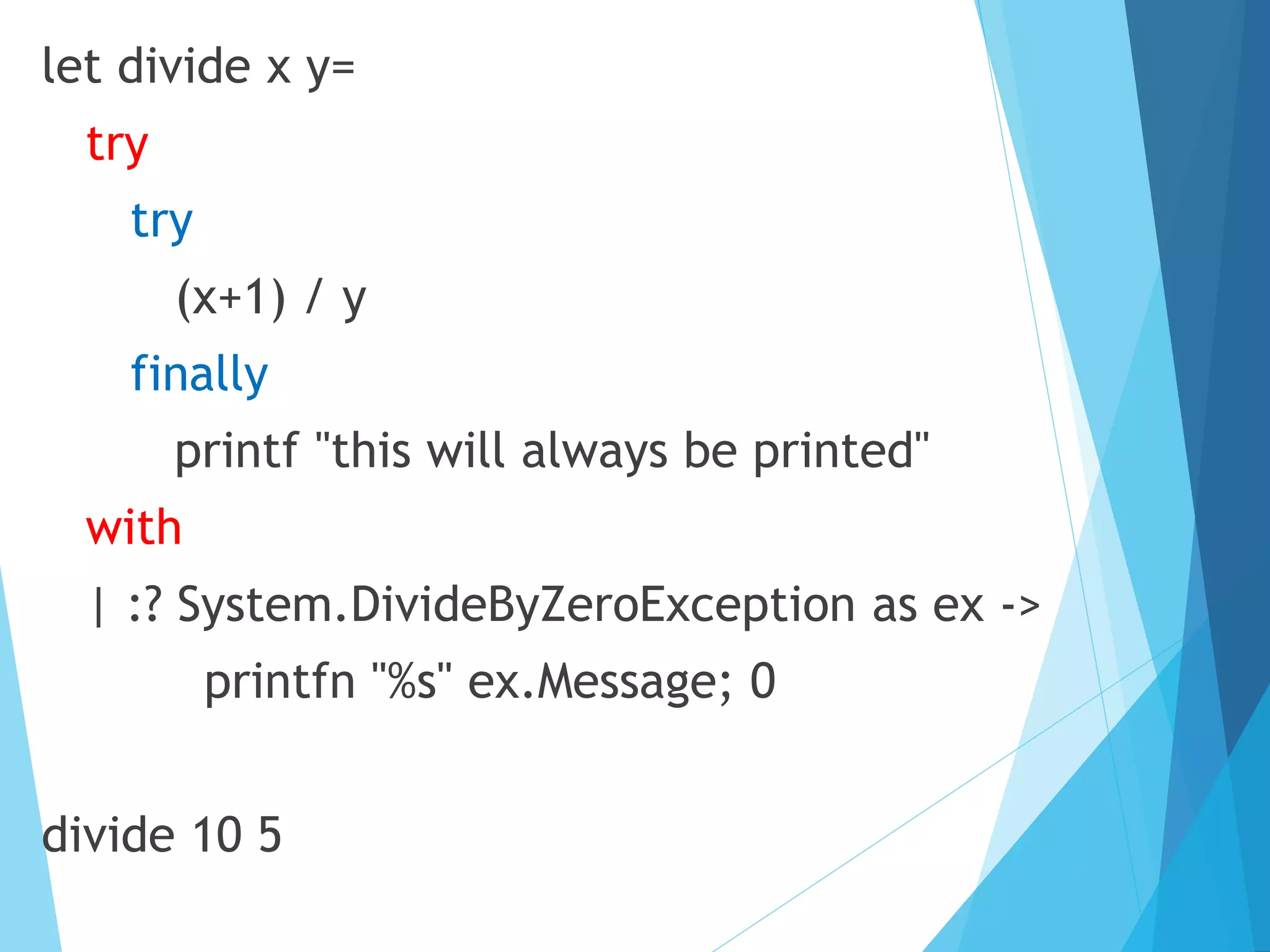
![Exception type Description Example Exception Base class for all exceptions. None (use a derived class of this exception). IndexOutOfRangeException Thrown by the runtime only when an array is indexed improperly. Indexing an array outside its valid range: arr[arr.Length+1] NullReferenceException Thrown by the runtime only when a null object is referenced. object o = null; o.ToString(); InvalidOperationException Thrown by methods when in an invalid state. Calling Enumerator.MoveNext() after removing an item from the underlying collection. ArgumentException Base class for all argument exceptions. None (use a derived class of this exception). ArgumentNullException Thrown by methods that do not allow an argument to be null. String s = null; "Calculate".IndexOf(s); ArgumentOutOfRangeExcepti on Thrown by methods that verify that arguments are in a given range. String s = "string"; s.Substring(s.Length+1);](https://image.slidesharecdn.com/exceptionhandling-200516111055/75/Exception-Handling-in-NET-F-21-2048.jpg)